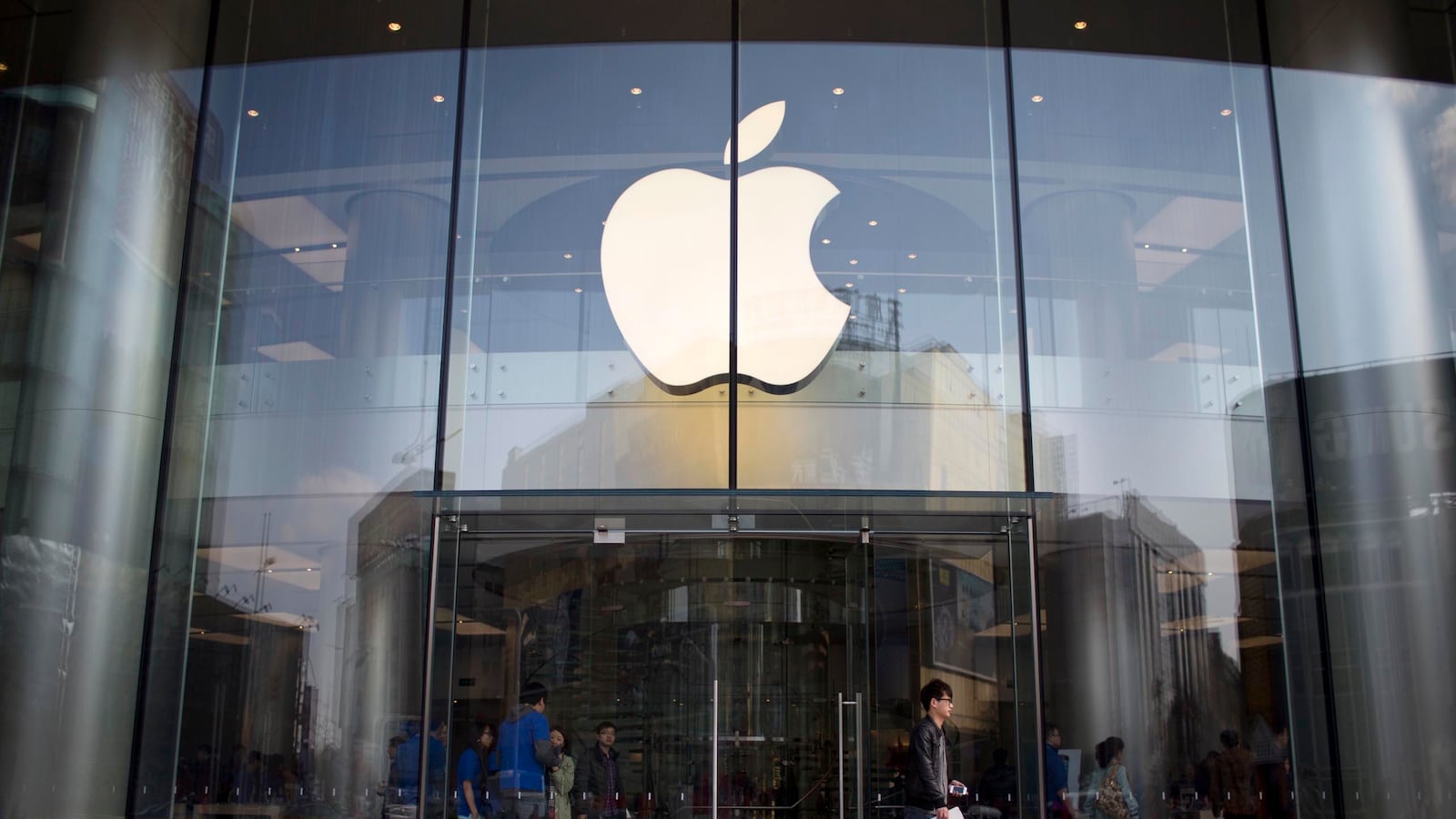In its quarterly earnings report on Tuesday, Apple didn’t roll out any new product lines. And for the first time since 2003, it reported that quarterly year-over-year income fell. The company made only $9.55 billion in the second quarter of its fiscal 2013, down from $11.6 billion in last year’s comparable quarter. While the news from Apple’s earnings may not stimulate investors, it should stimulate the economy. Along with revenue of $43.6 billion for the quarter, Apple announced a significant increase in its dividend and share buybacks. Together, these efforts could move some $100 billion of the company’s balance sheet into the pockets of shareholders by the end of 2015.

Call it an iStimulus.
First, Apple boosted its quarterly dividend by 15 percent, from $2.65 a share to $3.05 a share. The company also announced it would buy back $60 billion worth of Apple’s stock, up from the $10 billion it announced last year. “This is the largest share buyback operation of any company in history,” Apple Chief Financial Officer Peter Oppenheimer said on a call with analysts. This $100 billion needed to fund the dividends and buybacks won’t all come from the company’s massive $144.7 billion cash pile, $102 billion of which is held offshore. Rather, Apple will borrow some money to help fund these moves.
Why does the world’s richest company, with a cash pile larger than the market capitalization of Comcast, want to borrow money? Because it wishes to avoid paying taxes and because it’s cheap to borrow, especially if you sell the world’s most popular and expensive toys (Apple sold 19.5 million iPads this quarter alone). If Apple were to repatriate its cash held overseas, then it would have to pay the statutory corporate tax rate of 35 percent. When it borrows, it will have to pay very little interest.
Borrowing money to write checks to a huge number of people fell out of style when the Republicans took back the House in the 2010 midterms. But at least one part of the private sector is taking advantage of low interest rates and distributing a big chunk of cash.
Although it hasn’t issued any debt yet or announced its specific borrowing plans, Standard and Poor’s already gave Apple an A++ rating, while Moody’s gave Apple a “Aa1” rating because it expects that Apple “will continue to maintain and defend its very strong market position in mobile devices and tablets” and will “maintain a very high net cash balance and a lowly levered balance sheet.” The federal government pays around 1.7 percent to borrow money for 10 years, so Apple would probably only pay a slight premium. It currently carries no debt. When Amazon issued new debt for the first time in 14 years last November, its 10-year debt came at .93 percent premium to Treasuries.
So who benefits from this cheap-money Apple windfall? First and foremost, shareholders, who have taken a beating as Apple’s stock has fallen more than 40 percent from its September 2012 peak of just over $700. (The stock is now at $406). And those shareholders are concentrated in two large groups: big retail mutual funds and wealth managers who represent a cross section of stockowners and bigtime hedge funds. According to Morningstar, multiple Vanguard funds own 4.61 percent of the stock, Fidelity funds own 4.18 percent. Some 2.72 percent of the widely traded SPDR S&P 500 exchange traded fund, which tracks the S&P 500 index as a whole, is made up of Apple stock; 11.5 percent of the PowerShares QQQ ETF, which tracks the top 100 stocks in the NASDAQ, is Apple shares.
Another big chunk of Apple stock is owned by hedge funds, many of which have substantial holdings. Up until the end of last year, Apple was the favorite stock of the entire hedge fund industry, until it was replaced by the insurance giant AIG. According to Goldman Sachs, at the end of last year, 67 hedge funds had Apple in their top 10 asset holdings and hedge funds owned about 2 percent of Apple’s market capitalization.
As of early March, David Einhorn’s Greenlight capital, which recently ended a legal dispute with Apple and had publicly encouraged the company to issue special preferred shares in order to generate cash for shareholders, owned some 1.3 million Apple shares. That makes Greenlight entitled to more than $3 million in dividends come May 16. A Greenlight spokesperson told The Street that “"We applaud Apple's decision to borrow money and return excess capital to shareholders.”
According to SEC filings, Appaloosa, founded and run by the world’s highest paid fund manager David Tepper, owns over 912,000 shares and had increased its stake when many prominent hedge funds, while other big time funds like Dan Loeb’s Third Point and Leon Cooperman’s Omega Advisors sold out their Apple stakes. Appaloosa’s stake is worth roughly $370 million today and entitles it to just under $2.8 million in dividends, not to mention the substantial uptick sure to follow Apple announcing history’s greatest buyback.
In a statement, Apple CEO Tim Cook said “We believe so strongly that repurchasing our shares represents an attractive use of our capital that we have dedicated the vast majority of the increase in our capital return program to share repurchases.” And while the hedge fund agitators have had a lot of complaints about Cook’s tenure, on this, they can surely agree.






